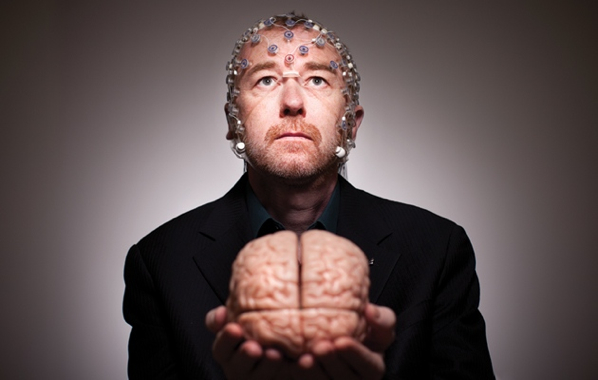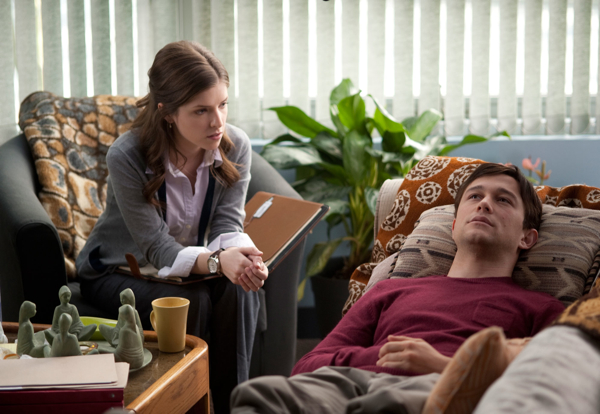 History
History  History
History  Health
Health 10 Everyday Activities That Secretly Alter Consciousness
 History
History Top 10 Historical Disasters Caused by Someone Calling in Sick
 Animals
Animals 10 New Shark Secrets That Recently Dropped
 Movies and TV
Movies and TV 10 Forgotten Realities of Early Live Television Broadcasts
 Technology
Technology 10 Stopgap Technologies That Became Industry Standards
 Weird Stuff
Weird Stuff 10 Wild Facts About Taxidermy That You Probably Didn’t Know
 Travel
Travel 10 Beautiful Travel Destinations (That Will Kill You)
 Miscellaneous
Miscellaneous 10 Modern Marriage Rituals Born from Corporate Branding
 Weird Stuff
Weird Stuff Ten Bizarre Visions of 2026 from Fiction
 History
History 10 “Modern” Problems with Surprising Historical Analogs
 Health
Health 10 Everyday Activities That Secretly Alter Consciousness
 History
History Top 10 Historical Disasters Caused by Someone Calling in Sick
Who's Behind Listverse?

Jamie Frater
Head Editor
Jamie founded Listverse due to an insatiable desire to share fascinating, obscure, and bizarre facts. He has been a guest speaker on numerous national radio and television stations and is a five time published author.
More About Us Animals
Animals 10 New Shark Secrets That Recently Dropped
 Movies and TV
Movies and TV 10 Forgotten Realities of Early Live Television Broadcasts
 Technology
Technology 10 Stopgap Technologies That Became Industry Standards
 Weird Stuff
Weird Stuff 10 Wild Facts About Taxidermy That You Probably Didn’t Know
 Travel
Travel 10 Beautiful Travel Destinations (That Will Kill You)
 Miscellaneous
Miscellaneous 10 Modern Marriage Rituals Born from Corporate Branding
 Weird Stuff
Weird Stuff Ten Bizarre Visions of 2026 from Fiction
10 More Common Misconceptions About Psychology
As we’ve already seen in a recent list of mine, there are many misconceptions about psychology. Some have taken such a strong hold that even many students of psychology believe them. Here are ten more examples:

Many people are only familiar with the popular culture version of amnesia, whereby someone forgets their past but can remember new things with no trouble; this is indeed a real condition, and is known as retrograde amnesia. Of course, the movies in which someone gets a bump on the head, forgets everything, and then remembers it later with another bump, are absurd.
There is also a second form of amnesia most people haven’t heard of called anterograde amnesia, and this one is arguably much worse than the first one. If you are struck by anterograde amnesia, you’ll be able to remember your past—but you won’t be able to form any new long-term memories.

Some people believe that dreams are a valid way of understanding people’s problems, and that they are therefore used regularly in therapy—but this is not the case. This particular misconception has been propagated mostly by movies and television, which often show the fictional therapist lying their client down on a couch and asking him about his dreams.
It’s important to note that dreams supposedly had a lot to do with the unconscious, according to Freud’s theories, and were very important. Many of Freud’s theories relating to dreams involved very young children. But more recent research shows that dreams in younger children have very little detail or subtext. Freud contributed greatly to psychology—but it’s generally agreed that his theories about human sexuality and dreams are total nonsense.

This one is a bit controversial; there are a few contrasting opinions on it, to say the least. Some self-help authors have come up with the idea that parents should simply let their baby howl away. Most researchers, however, don’t think that comforting a baby will bring it any harm; some studies have even shown that ignoring a crying baby could well have detrimental effects.
Importantly, some researchers have found that—at least during the first few months of its life—you should always console a crying baby.

For some reason, people love to brag about how good they are at multi-tasking—as though it were a really important skill. The truth is that multi-tasking is not, and never has been, real; you cannot carry out two tasks that require a degree of concentration at the same time.
Sure, you can switch your brain back and forth really quickly between multiple tasks—but your brain can only engage in one cognitive task at once. For every extra thing you are juggling back and forth, you are making it harder for your brain to work efficiently. The only possible exception to this would be someone with split brain syndrome, whose corpus callosum (which connects the two halves of the brain) is damaged or severed. In rare cases this is done on purpose, for patients who suffer from extremely bad seizures.

Many psychologists report hearing this one all the time: someone decides that they must be capable of reading minds, or at least of deeply analyzing them like some sort of Jedi while staring at them from between their fingers.
One psychologist, trying to deal with this myth, pointed out that human minds are so complex that psychologists often have trouble reading their own minds. Though psychologists are indeed skilled at understanding human behavior, this in no way means that they are capable of reading minds. Anyone who claims this faculty is no doubt trying to swindle you.

Many people get the impression that anyone who works in psychology spends most of their time talking to crazy people—and that most of this talking involves some form of therapy, usually centered on dreams. But this a fundamental misconception: for starters, there are a huge number of fields in psychology that don’t involve talking to crazy people at all—and most psychologists work in these fields.
Another basic misconception is that anyone who has a degree in psychology can actually perform counseling. The truth is, a bachelor’s is not enough; only a couple of states allow you to perform counseling without a doctorate.
This is another one that just does not want to die, probably thanks in a large part to the film Psycho. People hear about a schizophrenic and assume that this person hears voices, sees people, and—most typically—has multiple personalities.
As it turns out, not all schizophrenics hear anything; visual hallucinations are extremely rare; and more importantly, schizophrenics do not have multiple personalities. There is a specific disorder for multiple personalities called dissociative identity disorder—but there is great controversy surrounding even this. The controversy stems mostly from the fact that a large percentage of the psychological community doesn’t believe that multiple personalities are even real. As you can imagine, this has led to some spirited debate over the years.

Some people are convinced that boys and girls only develop their gender attributes because of the social environment in which they are raised. Others take a the opposite extreme, arguing that gender differences are based entirely on genetics. As you’ve probably imagined, both of these sides are completely incorrect.
Men and women are obviously different (though it must be stressed, not unequal), with different physical characteristics and different hormonal balances affecting their inclinations and behavior. Of course, environment is always going to play a role, too; there’s no doubt that society’s expectations play an important role in the behavior of a female versus the behavior of a male.

For a while, people believed that extra stimulation would cause babies to grow up smarter. Products like “Little Einstein” were all the rage. Unfortunately, after testing by scientists, it was discovered that not only were the Little Einstein videos not making children smarter—they may actually have been doing the exact opposite. Researchers found that the vocabulary development of children who had not seen the videos was better than that of children who had. Some child psychologists insist that the best way to help a baby develop an intelligent mind is via one-on-one contact with parents, as opposed to television.

There are several misconceptions here in regards to what a counselor is, what a psychologist is, and what a psychiatrist is. It would take too long to explain what they are not (there’s a lot of misinformation to dig through, after all) so we will content ourselves with explaining what they are.
To begin with, a counselor (as seen in many schools, for example) is not necessarily a psychologist. In some states, often provided you have a master’s degree associated with social work of some kind, you’ll eligible to perform counseling. Psychologists are people who have a doctoral degree in psychology. Many of them do not perform counseling at all, but they are qualified to do so if they wish. Psychiatry usually requires several extra years of study upon becoming a psychologist. Psychiatrists are basically medical doctors who are trained and certified to prescribe drugs to deal with mental health problems—and they don’t usually perform counseling.
You can follow Gregory Myers on twitter.









